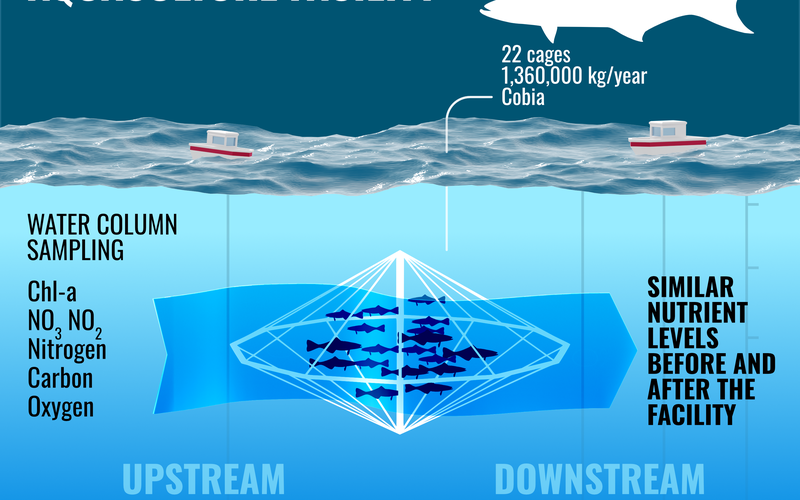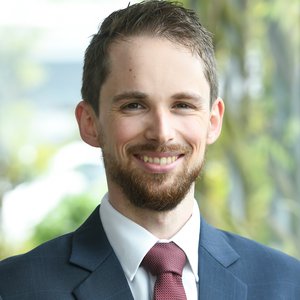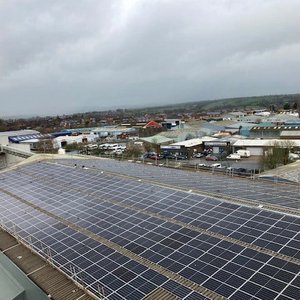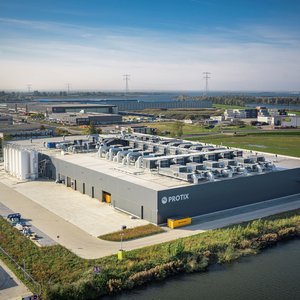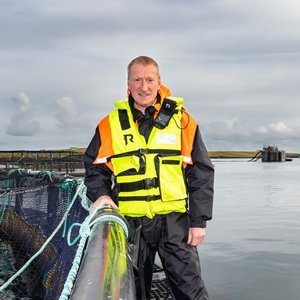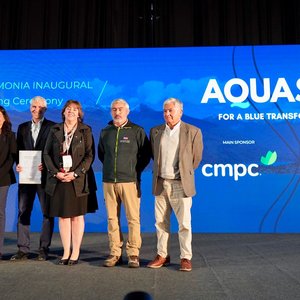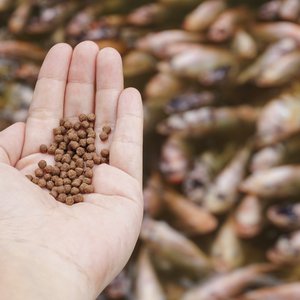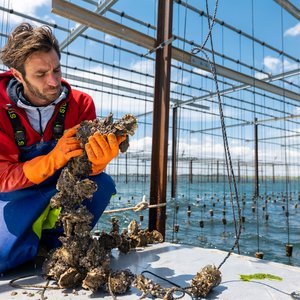A new study led by scientists at the University of Miami (UM) Rosenstiel School of Marine and Atmospheric Science found minimal environmental impacts to the surrounding waters from a major commercial fish-farming operation off the coast of Panama.
Researchers collected water samples at one upstream and three downstream locations from the submerged fish cages to investigate if there were significant or cumulative impacts resulting from locating fish farms offshore. Sediment samples were also collected to evaluate the effects of the aquaculture facility on the seafloor. The impacts of organic and inorganic pollution were evaluated, since they are one of the major concerns raised in relation to commercial aquaculture production.
The data revealed that only small amounts of nutrients are released from the farm and demonstrated that when appropriately sited, commercially scaled offshore aquaculture installations have the potential to operate in a way that produces a relatively small pollution footprint. The results also showed that any impacts from offshore fish farming are minimal compared to all other forms of animal protein production for human consumption.
“We must produce 30 million metric tons of seafood to keep up with human population growth and increasing consumption of seafood – and the open ocean appears to be the best if not the only environment that would allow for this expansion,” said the study’s lead author, Aaron Welch, who conducted the study while a graduate student at the UM Rosenstiel School and UM Abess Center.
“This study is of great interest to all stakeholders concerned with the expansion of offshore aquaculture in the United States and other countries,” said the study’s co-author, Daniel Benetti, a professor in the Department or Marine Ecosystems and Society and director of aquaculture at the UM Rosenstiel School. “To our knowledge, this is the first report of its kind from a commercially scaled aquaculture facility utilizing offshore submersible cage technologies.”
Read the full study here. It received support from the NOAA Marine Fisheries Initiative (grant number NA12NMF4330087) and the NOAA Sea Grant Aquaculture Research Program (project number NA10OAR4170079).


